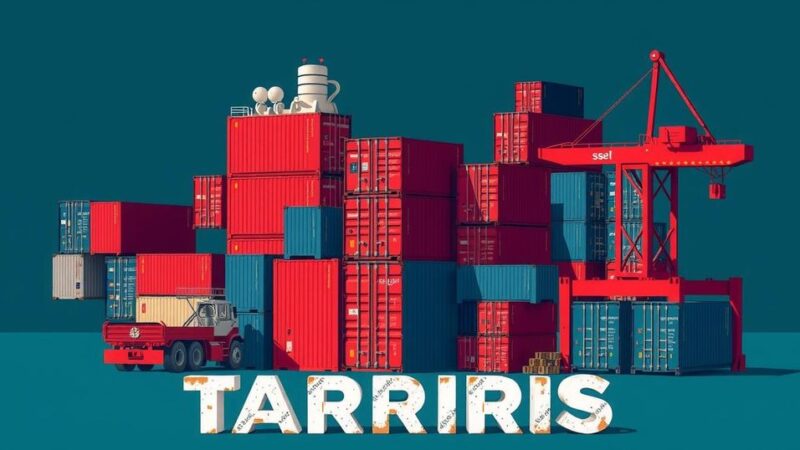Kenya’s cancellation of deals with the Adani Group, worth USD 2.5 billion, follows U.S. bribery charges against Gautam Adani, sparking widespread social media outcry with trending hashtags like #StopAdani. Despite initial assurances from government officials regarding the deals, public uproar led to their termination, amid allegations of non-transparent bidding practices favoring the Adani Group over other international bidders. The campaign continues, demanding clarity on further engagements involving Adani in Kenya’s health sector.
The recent cancellation of significant deals between Kenya and the Adani Group has ignited a notable uproar on social media platforms. Following the indictment of Gautam Adani and several associates on bribery charges by U.S. prosecutors, Kenyans took to social media in droves, propelling hashtags such as StopAdani and ArrestAdani to the forefront of discussions. Initially valued at approximately USD 2.5 billion, these contracts involved crucial projects including the enhancement of electricity transmission infrastructure and the management of Nairobi’s Jomo Kenyatta International Airport.
Despite the widespread social media backlash and initial statements from Kenya’s Energy Secretary, Opiyo Wandayi, asserting the continuation of the agreements, President William Ruto ultimately announced their termination. This decision was catalyzed by public pressure reflected in over two million related posts on X, showcasing a strong collective sentiment against both Adani and the perceived improprieties of the contractual processes that led to the agreements. Meanwhile, discussions ensue regarding additional contracts related to the health sector signed by the Adani Group, keeping public scrutiny alive.
Allegations of collusion have surfaced against the Adani Group, suggesting favoritism in the awarding of contracts which reportedly favored them over other interested firms from South America and Singapore. Whistleblower Nelson Amenya provided further context by denouncing the lack of transparent bidding processes, raising concerns about the economic implications for the Kenyan public.
The Adani Group, led by Gautam Adani, has faced scrutiny recently following a severe indictment for bribery charges totaling over USD 250 million in connection with securing solar energy contracts in India. This scandal reverberated internationally, notably in Kenya, where the Adani Group had engaged in substantial business transactions valued at USD 2.5 billion with the Kenyan government. These transactions involved the improvement of infrastructure, prompting widespread social media engagement and protests. Notably, claims of misconduct in the bidding processes have exacerbated local concerns, leading to public discontent and calls for accountability from the Kenyan leadership.
In conclusion, the tumult surrounding the Adani Group’s dealings with Kenya underscores the significant impact of international legal proceedings on domestic affairs, particularly in developing nations. The response on social media reflects a deep-seated public demand for transparency and accountability in governmental agreements. The repercussions of the recent U.S. indictments have not only suspended substantial contracts but have also illuminated ongoing issues regarding bidding practices and governance within Kenya, placing immense pressure on local officials to ensure fair and ethical management of public resources.
Original Source: www.indiatoday.in






